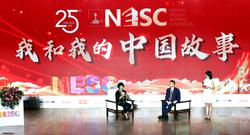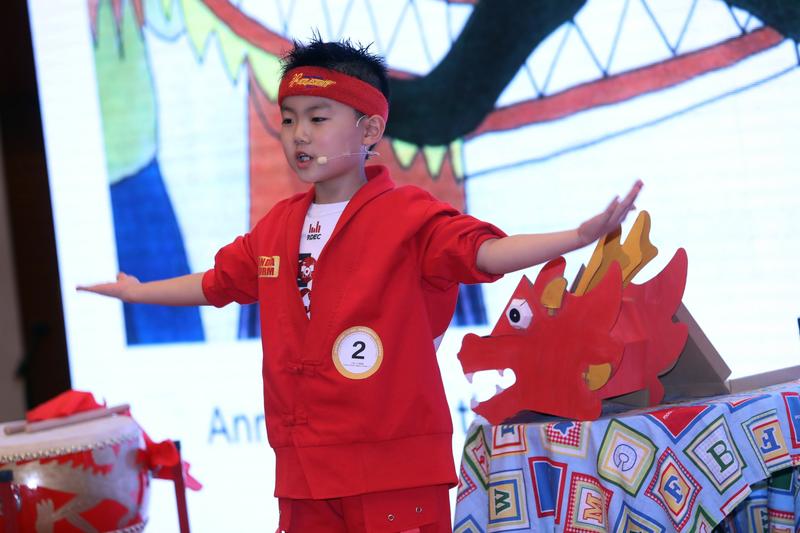 Judges Wu Minsu and Wang Guan (seated) share their stories at the event in Guangzhou. (PHOTO / CHINA DAILY)
Judges Wu Minsu and Wang Guan (seated) share their stories at the event in Guangzhou. (PHOTO / CHINA DAILY)
In 1996, when the China Daily 21st Century Cup National English Speaking Competition was launched, the aim was to train college students to be proficient in another language and communicate clearly with the world, said Huang Qing, a former deputy editor-in-chief of China Daily.
However, in the 24 years since then, the competition has gone far beyond this simple goal. It now plays a role helping document every major step the country takes in its development, while also encouraging young people to share China's stories with the world and giving voice to those who will shape the future.
In 2001, the theme for the final in the competition's college category was "Beijing 2008: the meaning of the bid". The competition was held in March that year, four months before July 13, the day when Beijing was announced as the host city of the 2008 Olympic Games.
The topic for the 2005 final in the college category was "The impact of globalization on traditional Chinese values". It was at a time when China was being flooded by Western concepts and culture, and debate had started about the relationship between Western ideas and Chinese values.
Fast forward to 2018, when the theme for that year's college category was the "New era: China and the world".
Zang Yingjie, who won the category, said in his speech: "We're all made of particles that have existed since the beginning of the universe. I'd like to believe those particles traveled through countless eras to create us, so that we, the people, China, and the world, can stand on the shoulders of giants and march into the new era with our heads held high."
Motivated by topics such as these, young contestants have over the years managed to develop a better understanding of the world and their life paths.
ALSO READ: National contest crowns HK student for speech on kindness
 Qingdao Tong'an Primary School student, Sun Anze, takes part in the China Daily 21st Century Cup International English Speaking Competition's primary school category final in Guangzhou, Guangdong province this week. (PHOTO / CHINA DAILY)
Qingdao Tong'an Primary School student, Sun Anze, takes part in the China Daily 21st Century Cup International English Speaking Competition's primary school category final in Guangzhou, Guangdong province this week. (PHOTO / CHINA DAILY)
Wu Minsu, 57, a journalism professor at Communication University of China, said she was glad to see many of her students make major achievements after participating in the competition. "They are now working in different industries, using English to tell China's stories, spreading China's voice and promoting Chinese culture," she said.
Wu, now a member of the judging panel, has mentored young English public speakers for 17 years.
The competition itself is also developing with the times.
In 1996, it only had one category, which was solely for college students. As the competition's influence has grown, the range of contestants has expanded and now spans kindergarten children to college graduates and young professionals.
Last year, the first international category was launched, attracting young speakers from more than 30 countries.
Zhan Cheng, a professor and PhD supervisor at Sun Yat-sen University's School of Foreign Languages, said the scale, influence and professionalism of the competition had greatly increased after years of development. It now represents the pinnacle of the teaching and practice of English public speaking in the country, he said.
"The development and expansion of the event indicates that China is now opening its door wider and wider to the outside world," said Zhan, who was the second runner-up at the 1999 China Daily 21st Century Cup.
He said he was surprised by how the English public speaking skills of contestants had improved compared to when he was a contestant."I think it's because China is more open and young people have access to more information and more opportunities," Zhan said.
READ MORE: 5 to represent HK in national English-speaking contest
Contact the writers at zhengcaixiong@chinadaily.com.cn


